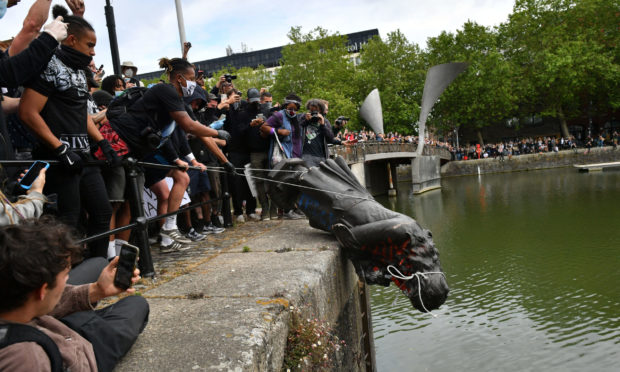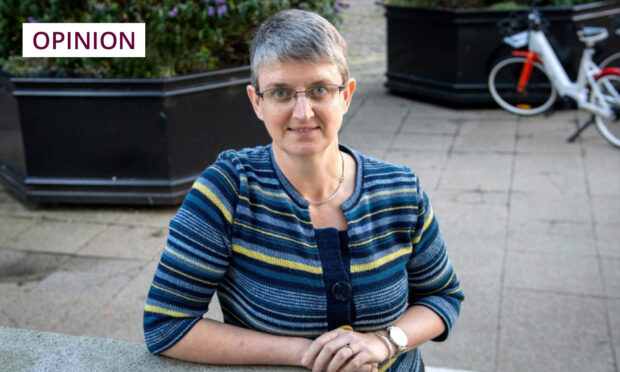I was laughing aloud as I watched the statue of vile Edward Colston consigned to the bottom of Bristol’s harbour by a cheering crowd.
Yeah, you’d better believe I’m going Full Lefty this week with a rant about statues, street names and sundry historical offences smeared across Scotland and beyond.
During last weekend’s Black Lives Matter demonstrations in Bristol, the statue of the 17th/18th-century slave trader was joyfully torn down.
It’s since been fished out and taken to a museum, where it will be presented in proper context as a problematic object. Its damage will not be repaired.
And it will no longer stand above the street as an obscene celebration of a man who treated his fellow humans as property – contributing to misery and death that may never be fully quantified.
Before The Courier’s regular correspondents snatch up green pens and accuse me of encouraging criminal activity, please know I am not.
I would have preferred the years-long process of dialogue to have led to the Colston statue being removed, but those in power weren’t listening.
I wouldn’t encourage the civil disobedience that followed, but I understand it and I’m not sorry it happened.
Now the conversations are widening. In Albert Square, Dundee, a statue of slave owner George Kinloch stands without explanation.
Similarly, a memorial near Comrie, Perthshire celebrates Henry Dundas, who campaigned against the abolition of slavery and is credited with delaying it by 15 years.
The other day I stood on Dundas Street, a major route through Ontario, which is named after the same man.
Daily, millions of people utter his name without really knowing what it stands for, and that’s just wrong.
I note an argument on social media and letters pages that we should leave these memorials alone, preserving our history.
But why do that if we can’t learn from it? We must understand the story we’re telling now and in the future, and use it to improve lives. Either tell the truth or remove these objects.
And I loved the history made in Bristol. It was worth hundreds of statues. Long may it be remembered.










